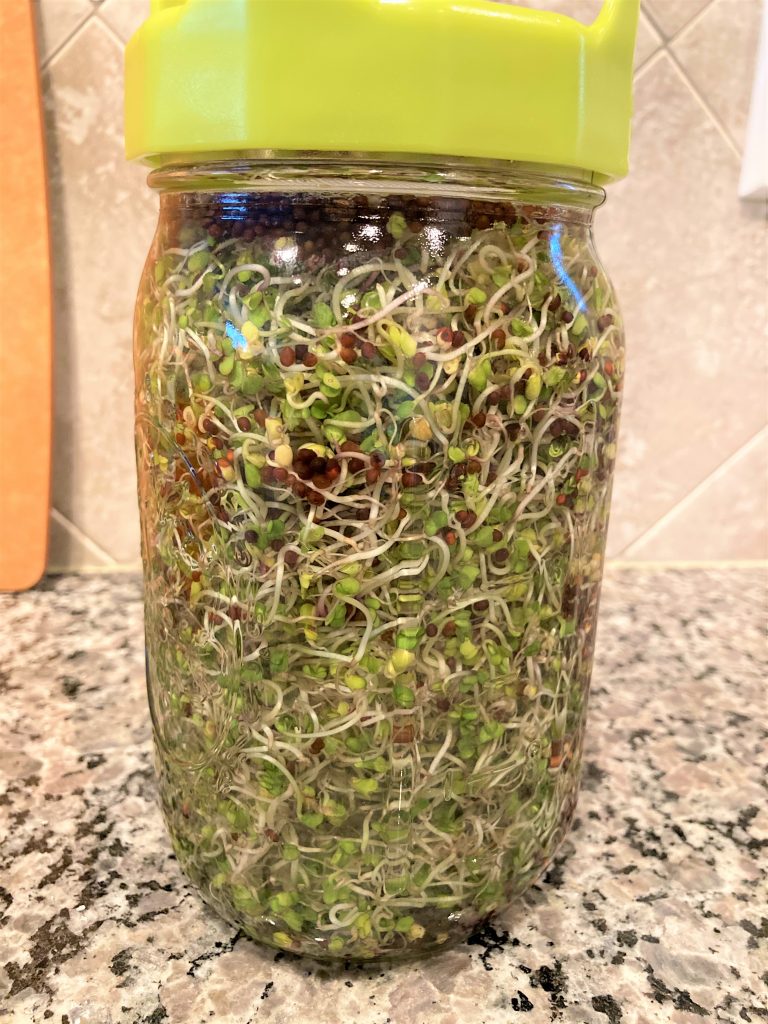
I’m going to plant a seed in your mind…
… and I hope that by the time you finish reading this blog post, that tiny seed will have sprouted into a garden of healthy ideas! Pun totally intended 😉
To begin, let me share a quick visual:
In order to grow a plant from a seed, the seed must be placed in moist ground and then be warmed by the light of the sun. Assuming that these two elements (water and sunlight) are present, the seed cracks open and the tiny seedling starts to grow. After a few days, the seedling reaches the earth’s surface and grows into a stalk and eventually bears fruit (or veggies). Assuming we eat the entire fruit, we internalize all of the nutrients that were once contained in the original seed.
When you think about it, this is a pretty spectacular phenomenon! The seed holds all of the future plant’s potential within that tiny, hard vessel. To prevent it from sprouting too soon – before it reaches the fertile environment of the earth – it is encased in many layers of protection which are designed to seal in the nutrients.

Now, if one sprout of broccoli will eventually grow into a full head of broccoli, what do you think about the nutrient density of eating about 15 broccoli sprouts in one bite?! Or 50 sprouts in one meal?! Broccoli is not only high in vitamins and minerals – it is also one of the most abundant sources of an anti-cancer compound called sulforaphane.
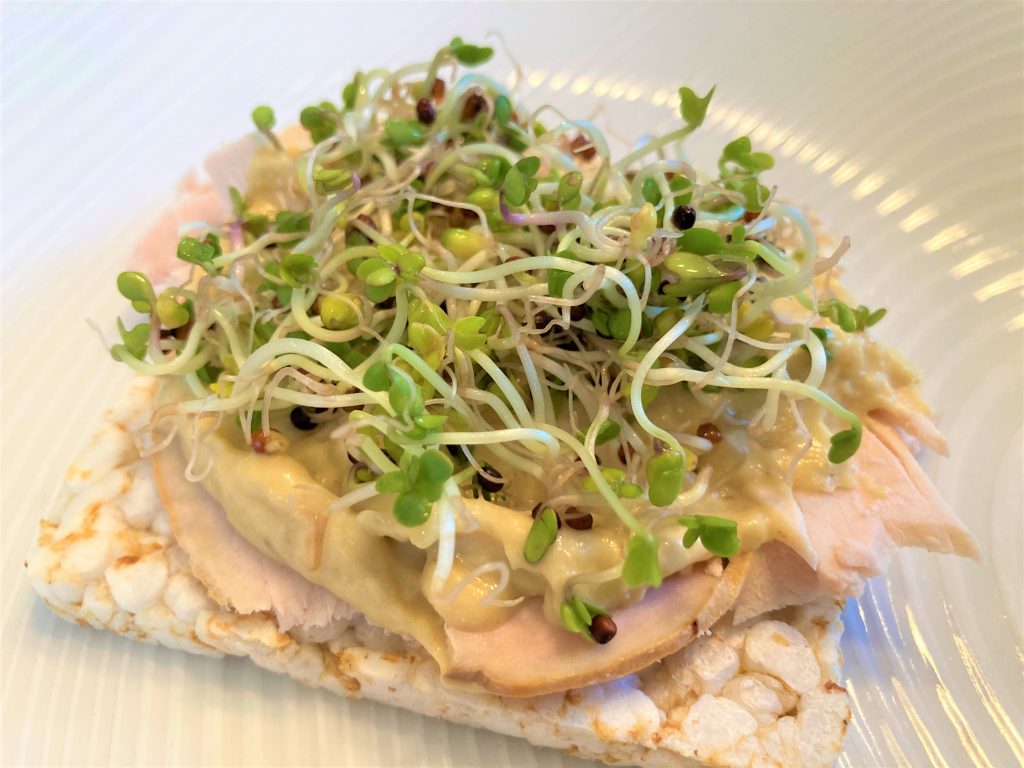
According to Dr. Axe, Sulforaphane has been shown to support the heart, bones and respiratory system, and it might help your body fight off a common infection, detoxify environmental chemicals, combat autoimmune disease and even protect your brain after serious injury (Edwards, 2018).
Broccoli sprouts contain 10-100 times the amount of sulforaphane found in mature broccoli!! If you are interested in learning more about the health benefits of this powerful compound, I encourage you to check out this article by Dr. Axe or do some of your own research – there is SO much information about sulforaphane available, there is a recommendation on the container of store-bought broccoli sprouts to research the health benefits of it! (Talk about a powerful ingredient list on a packaged food!)
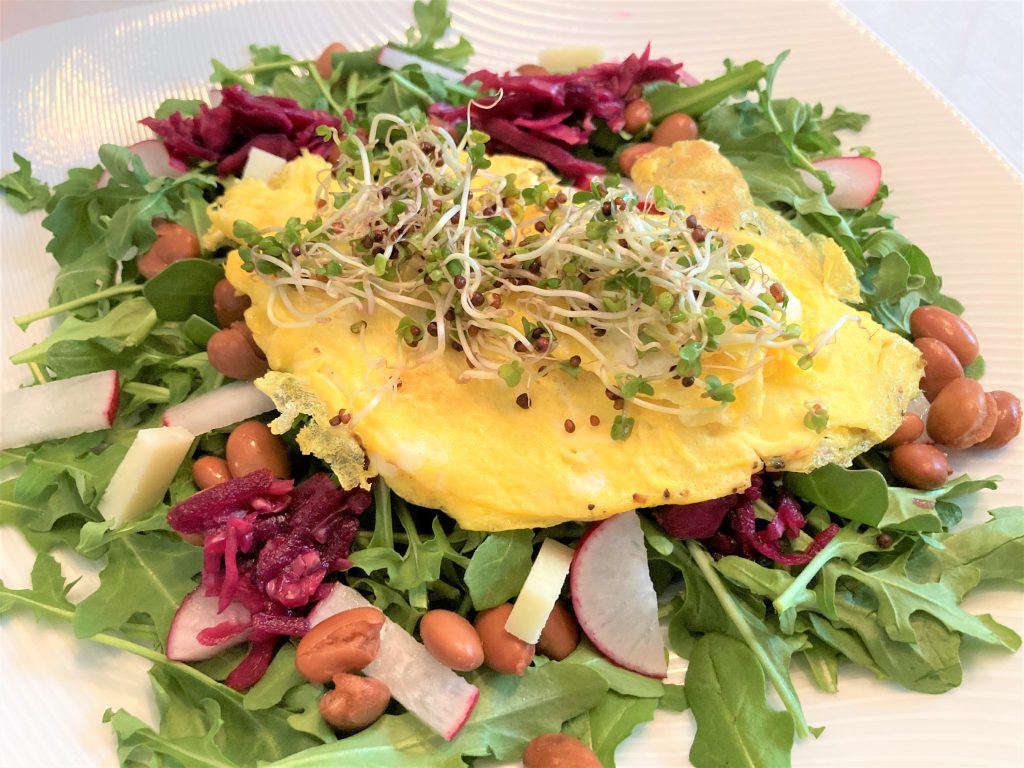
Aside from broccoli, other common sprouts with comparable health benefits include:
- Alfalfa sprouts – “Rich in phytochemicals, protect against cancer, heart disease, osteoporosis and fibrocystic breast disease. They stimulate natural killer cell activity, which strengthens the immune system. Beneficial in reducing symptoms of PMS and menopause, including hot flashes. They contain high concentrations of antioxidants, the body’s defense against the destruction of DNA which is the cause of aging. Alfalfa sprouts are abundant sources of vitamins A, B, C, E and K, the minerals calcium, iron, magnesium, phosphorus, potassium and zinc. Also carotene, chlorophyll, amino acids and trace elements.” (Telpner, 2010)
- Red Clover sprouts – “Rich in phytochemicals, in particular genistein, which is known to prevent the formation of new blood vessels inside a tumor, in essence starving the tumor, it is protective against diseases like cancer. Red clover contains naturally occurring plant estrogens, similar to human estrogen, so they are helpful with PMS, menopause, hot flashes and fibrocystic disease. They contain vitamins A, B, C, E and K, the minerals calcium, magnesium, potassium, iron, phosphorus and zinc, trace minerals, carotene, chlorophyll and amino acids” (Telpner, 2010).
- Mung Bean Sprouts – “Abundant in vitamins A, B, C and E, the minerals iron, potassium, calcium and magnesium, and amino acids” (Telpner, 2010).
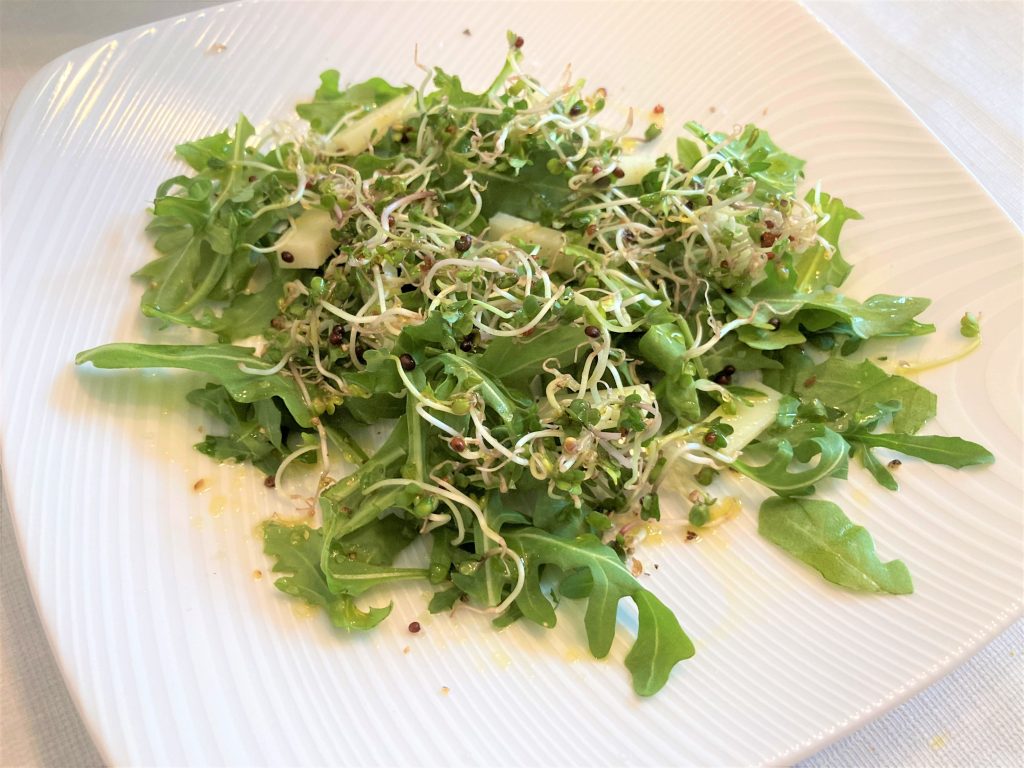
Where to find sprouts?
Option #1: Produce department of your local grocery store ($1.79-3.99)
Option #2: GROW YOUR OWN at home in a Mason jar in 4-5 days!
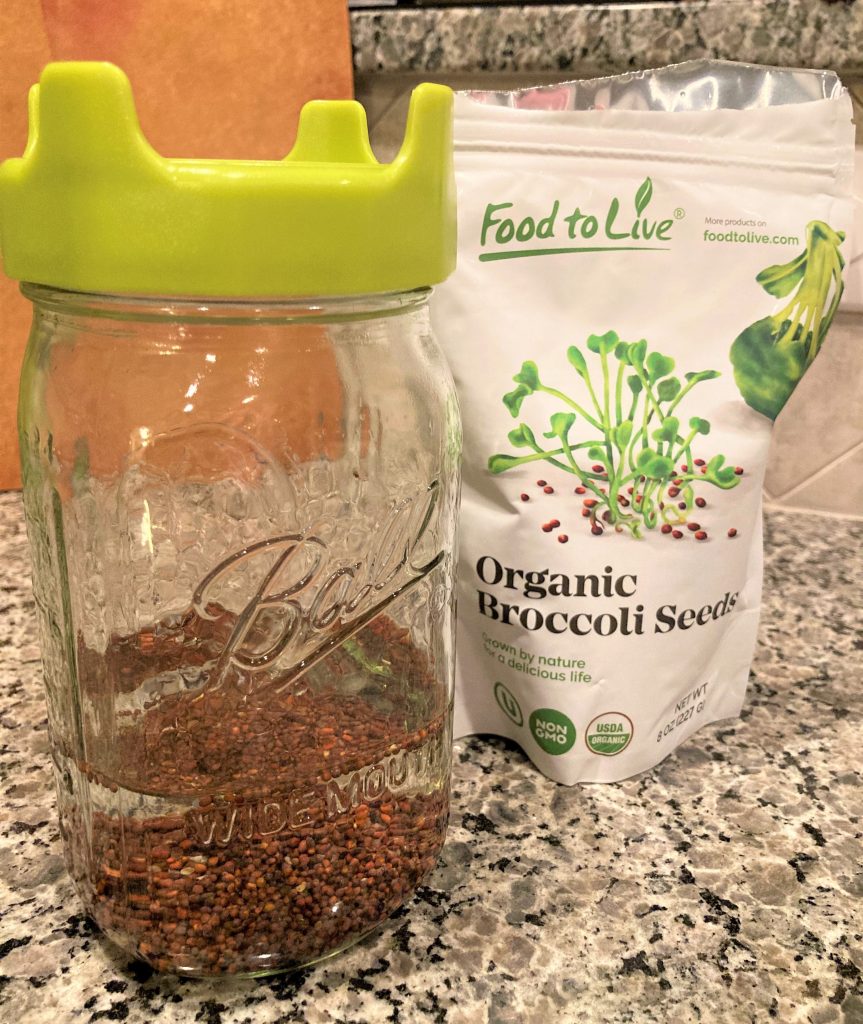
Sprouting instructions:
Place 2 tablespoons of seeds in a large, wide-mouth Mason jar and cover with room-temperature water. Cover with sprouting lid OR cheesecloth with a rubber band. Soak for 8-12 hours, or overnight. Discard the soaking water and rinse thoroughly with cool water. Drain well. Set up the jar so that the sprouts can continue to dry and place anywhere that gets good air circulation but does not receive direct sunlight. Rinse and drain every 8-12 hours for the next 4-5 days, or until the sprout tails are about 1 inch long! Refrigerate and continue to rinse daily.
The sprouting lids that I used are SUCH a time-saver! Instead of removing the seeds from the jar each time I had to rinse them, I simply poured water into the jar, swirled it around, and dumped it out. The lid has a fine mesh covering that keeps even the tiniest seeds in the jar. They are from $8.99 for a two-pack on Amazon and here is the link: Sprouting lids from Amazon
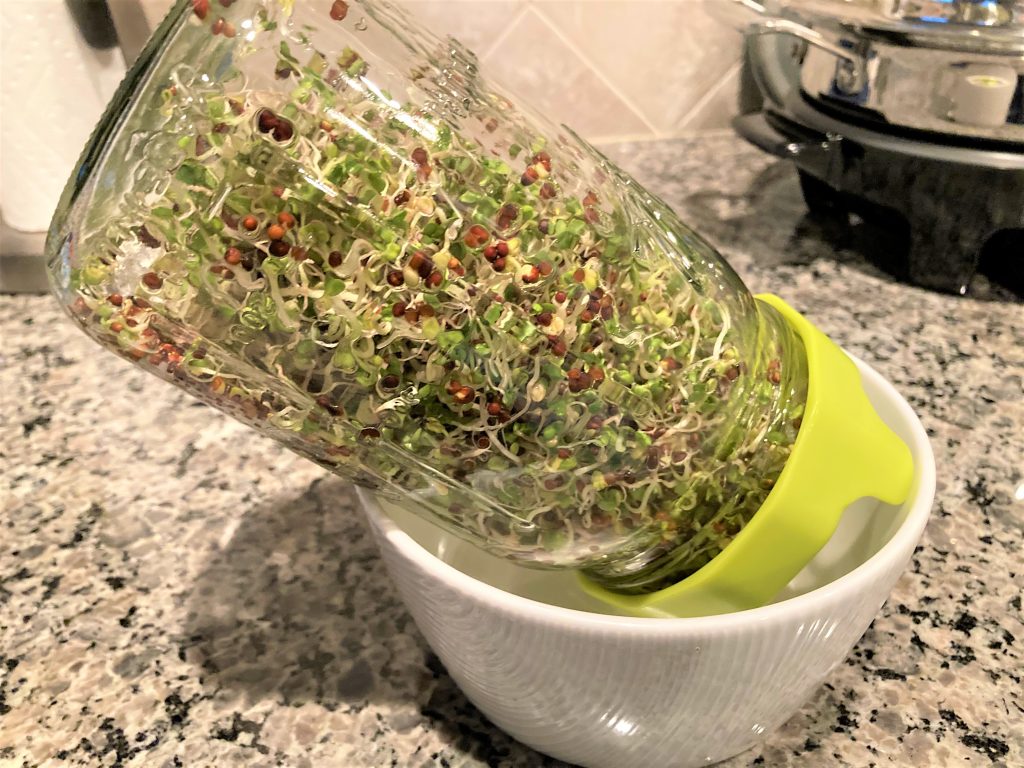
What about the seeds?
I have a 5-pack of sprouting seeds that I got from my mom for Christmas and it is fantastic! It came in a beautiful, sturdy gift box and the seed packets were even wrapped in tissue paper! This is a great gift for the health enthusiast in your life 😉
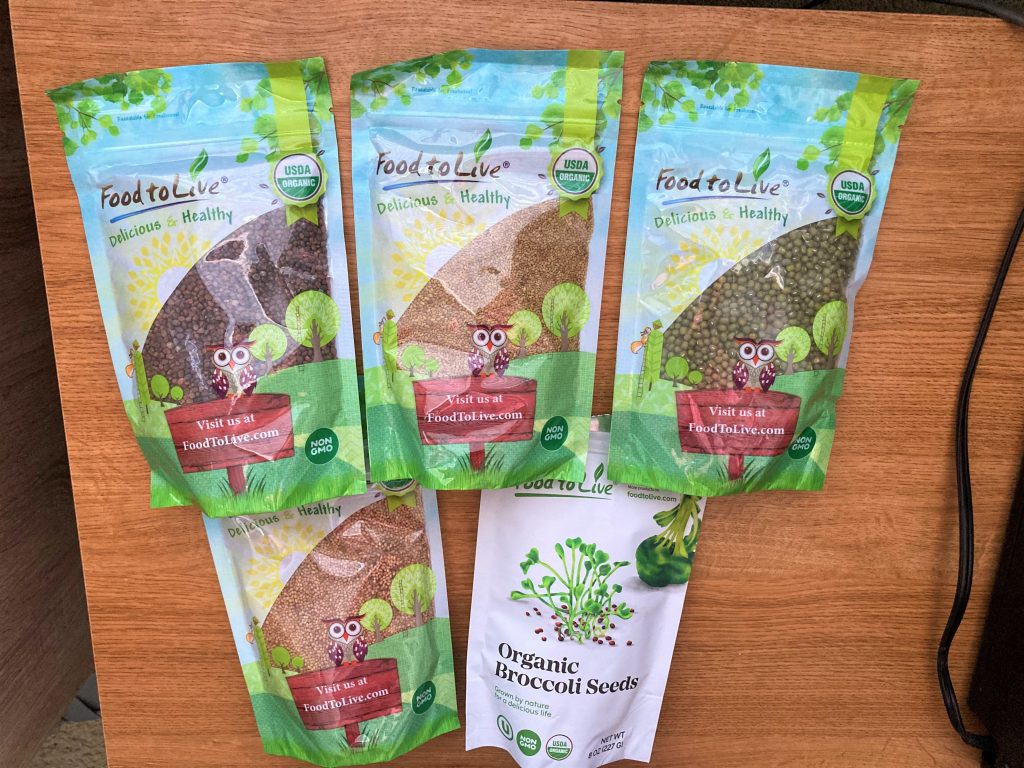
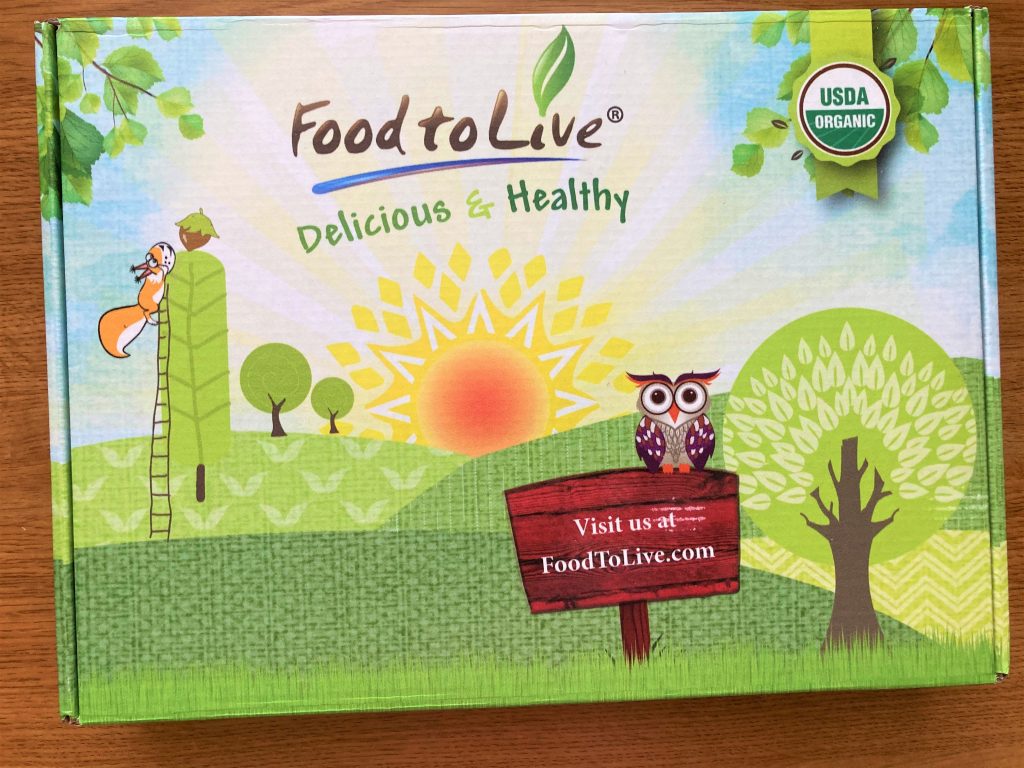
Additional Benefits to Consider…
“Health Insurance:” When it is tough to get fresh produce from the grocery store on a daily or weekly basis, it is nice to know that you have energy-boosting, nutrient-dense veggies growing on your kitchen counter. In this COVID-19 era, with potential lockdowns and quarantines looming in the future, I consider my sprouts to be one form of “health insurance” for the months and years ahead.
Teaching moment: there is no better way to teach kids about how their food is grown than to let them get hands-on! Each time I rinsed my sprouts, I showed Thomas the Mason jar and he was intrigued! In a few more months he’ll be able to understand more about what I’m doing, but kids of any age can do this with supervision.
Culinary Garnish: even though we’re eating more meals at home, we can still play around in the kitchen and make them taste and look like they are from a 5-star restaurant! Sprouts are perfect stuffed into a turkey pita, on top of broccoli soup, a garnish on a grain pilaf, or even your morning eggs for a true burst of energy!
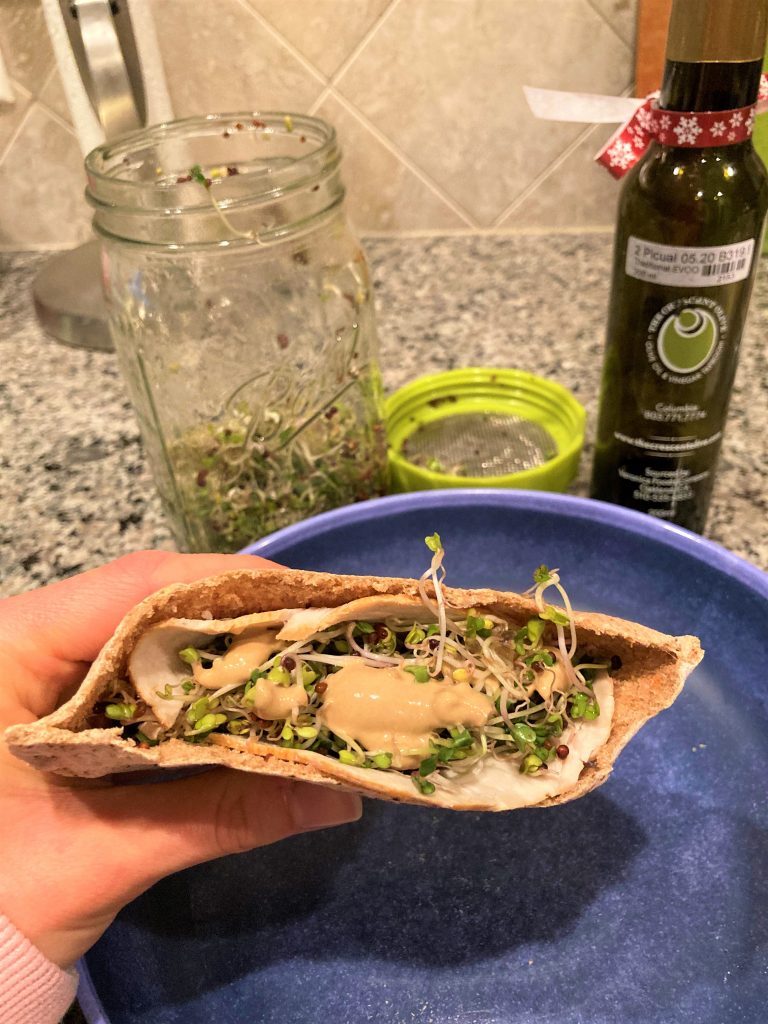
References
- Edwards, R. (2018). Broccoli sprouts: One of nature’s top cancer-fighting foods. Retrieved from https://draxe.com/nutrition/broccoli-sprouts/
- Telpner, M. (2010). Sprouts: Home grown veggie protein power. Retrieved from https://www.meghantelpner.com/blog/how-to-sprout-sprouts-sprouting-from-seed/
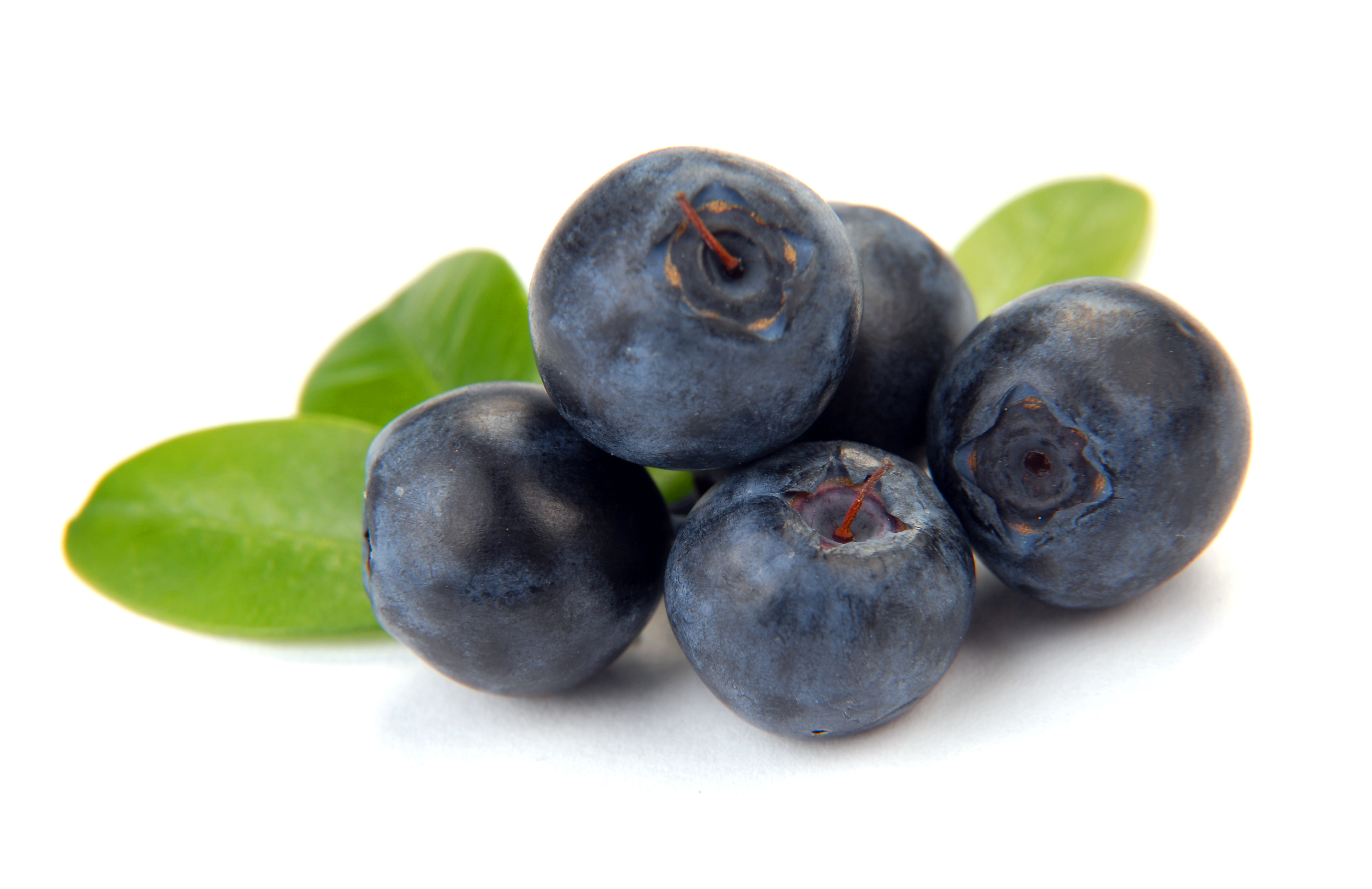
I’m sold on the entire newsletter! I think I’ll start with buying sprouts in the produce section, then growing my own a little later.
You are incredible! Thanks!
I’m so glad you’re enjoying it! I also started with buying them in the produce section but then it turned into a hobby that was also very economical! Also, they are the easiest and lowest-maintenance form of gardening you can do 😉